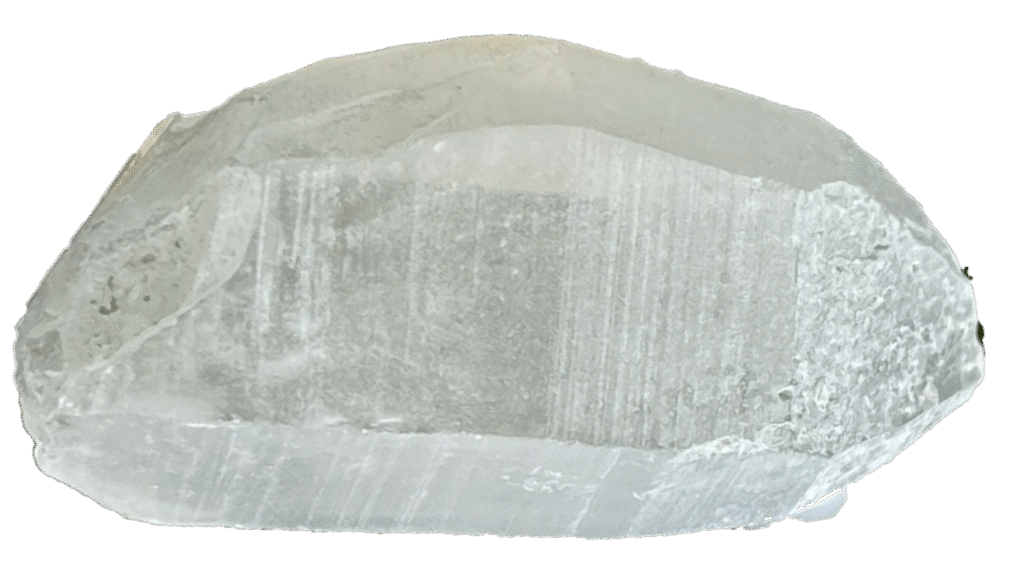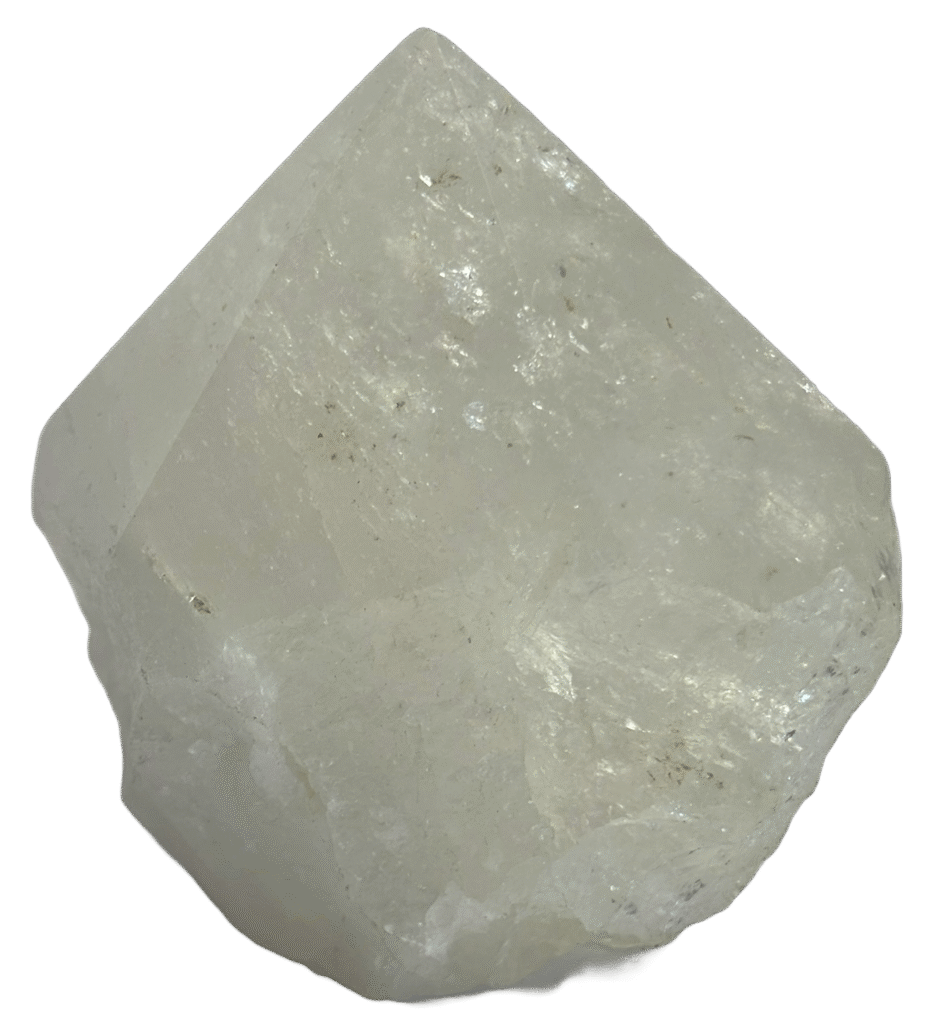
he term “quartz” derives from the German word “Quarz,” which has roots in the Slavic “tvrdý,” meaning “hard.” The ancient Greeks referred to clear quartz as “krustallos,” meaning “ice,” believing it to be eternally frozen water. Quartz has numerous alternate names based on its varieties, including amethyst, citrine, rose quartz, smoky quartz, and rock crystal.
Composition and Physical Characteristics
Quartz is a silicon dioxide (SiO₂) mineral, crystallising in the trigonal system. It possesses a Mohs hardness of 7, exhibiting remarkable durability. Its fracture is conchoidal, and it presents a vitreous to greasy lustre. Pure quartz is transparent, but trace elements, inclusions, or irradiation can yield a spectrum of colours and patterns. Some varieties exhibit chatoyancy, asterism, or phosphorescence.
Varieties of Quartz
Quartz manifests in numerous forms, including:
- Macrocrystalline Quartz (large visible crystals): Rock crystal, amethyst, citrine, smoky quartz, rose quartz, blue quartz.
- Cryptocrystalline Quartz (microcrystalline structure): Chalcedony, agate, carnelian, onyx, jasper, and aventurine.
- Synthetic Quartz: Lab-grown specimens used in industrial applications and jewellery.
Locations
Quartz is among the most abundant minerals on Earth, forming in diverse geological environments. Notable deposits exist in Brazil, Madagascar, the United States, Russia, Switzerland, and India. Scottish and Welsh mountains have yielded fine specimens, and England’s Cornwall region is known for its quartz-rich veins.
Archaeological and Significant Finds
Quartz has been uncovered in prehistoric tools, sacred artefacts, and burial sites. Ancient Egyptians fashioned amulets from quartz, while the Greeks and Romans used it for engraved intaglios. Quartz crystals were integral to early timekeeping devices and have been found in Neolithic circles and megalithic structures.
Historical and Current Usage
Historically, quartz adorned jewellery, sculptures, and ceremonial items. It played a crucial role in early lens-making and Renaissance-era crystal balls. Today, quartz underpins modern technology, from watches and semiconductors to optical fibres and medical devices. Its aesthetic appeal sustains its popularity in jewellery and home décor.
Interesting Facts
- Quartz exhibits piezoelectric properties, meaning it generates an electric charge under mechanical stress.
- Ancient civilisations believed quartz to store and transmit energy.
- Clear quartz is known as the “Master Healer” in metaphysical traditions.
- The largest documented single quartz crystal weighed over 44 tonnes.
Folklore, Legends, and Tales
Ancient cultures ascribed mystical properties to quartz. Japanese mythology describes quartz as “the perfect jewel,” symbolising purity and patience. In European folklore, clear quartz was considered solidified light. Indigenous Australian tribes associated quartz with powerful rainmaking ceremonies.
Mystical Healing Properties
Quartz is thought to amplify energy, enhance clarity of thought, and promote spiritual growth. Each variety possesses unique attributes: amethyst fosters tranquillity, rose quartz nurtures love, and smoky quartz grounds energies. Clear quartz is reputed to harmonise all chakras and align spiritual and physical realms.
Links with Astrology and the Zodiac
Quartz resonates with multiple zodiac signs. Amethyst aligns with Pisces and Aquarius, citrine with Sagittarius and Gemini, and rose quartz with Taurus and Libra. Clear quartz is universally associated with all signs, symbolising balance and harmony.
The Chakra System
Quartz is deeply linked to the chakra system. Clear quartz aligns with the crown chakra, fostering enlightenment. Rose quartz resonates with the heart chakra, encouraging emotional healing. Amethyst connects with the third eye, enhancing intuition, while smoky quartz grounds the root chakra.
Birthstone and Wedding Anniversary Links
Quartz varieties serve as birthstones; amethyst represents February, and citrine symbolises November. Quartz is linked to the sixth wedding anniversary, signifying enduring strength and clarity in relationships.

Quartz
Quartz amplifies energy and intention, offering clarity, balance, and spiritual connection. A versatile crystal for healing, focus, and inner strength.
